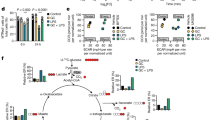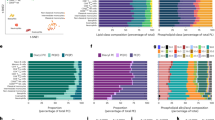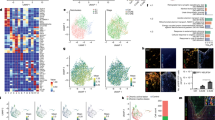Abstract
Activin A, a multifunctional factor of the transforming growth factor-beta (TGF-β) superfamily, is mainly produced by microglia and macrophages, and its anti-inflammatory and pro-inflammatory activities are both related to macrophage functions. However the direct effect of activin A on the rest macrophages in vivo remains unclear. In the present study, the results showed that activin A not only increased NO and IL-1β release, but also promoted phagocytic abilities of mouse peritoneal macrophages in vitro and in vivo, whereas it did not influence MHC I and MHC II expression. Moreover, we found that activin A significantly upregulated the expressions of CD14 and CD68, markers of mature macrophages, on the surface of macrophages in vitro and in vivo. These data suggest that activin A can induce primary macrophage maturation in vitro and in vivo, but may not trigger the acquired immune response via regulating expression of MHC molecules involved in presentation of antigen.
This is a preview of subscription content, access via your institution
Access options
Subscribe to this journal
Receive 12 digital issues and online access to articles
$119.00 per year
only $9.92 per issue
Buy this article
- Purchase on Springer Link
- Instant access to full article PDF
Prices may be subject to local taxes which are calculated during checkout
Similar content being viewed by others
Author information
Authors and Affiliations
Corresponding author
Rights and permissions
About this article
Cite this article
Wang, Y., Cui, X., Tai, G. et al. A Critical Role of Activin A in Maturation of Mouse Peritoneal Macrophages in vitro and in vivo. Cell Mol Immunol 6, 387–392 (2009). https://doi.org/10.1038/cmi.2009.50
Received:
Accepted:
Issue Date:
DOI: https://doi.org/10.1038/cmi.2009.50
Keywords
This article is cited by
-
The serum levels of activin A and bone morphogenetic protein-4 and -6 in patients with fibrodysplasia ossificans progressiva
Orphanet Journal of Rare Diseases (2023)
-
Activin A increases phagocytosis of Escherichia coli K1 by primary murine microglial cells activated by toll-like receptor agonists
Journal of Neuroinflammation (2018)
-
CD14 is critical for TLR2-mediated M1 macrophage activation triggered by N-glycan recognition
Scientific Reports (2017)
-
Alveolar macrophages: plasticity in a tissue-specific context
Nature Reviews Immunology (2014)
-
Activin A: A Potential Therapeutic Target for Characterizing and Stopping Joint Pain Early in Rheumatoid Arthritis Patients
Inflammation (2014)



